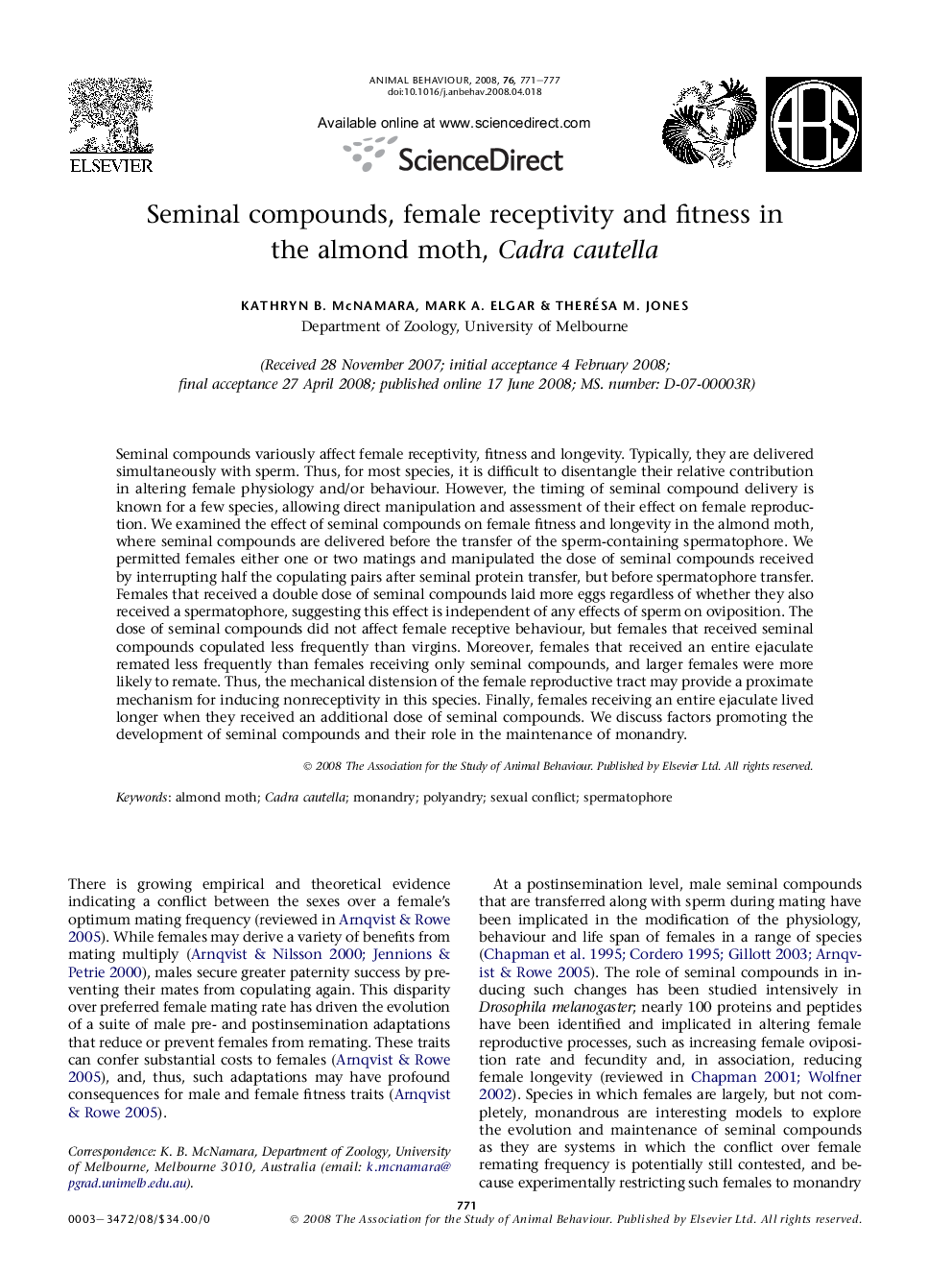| Article ID | Journal | Published Year | Pages | File Type |
|---|---|---|---|---|
| 2418822 | Animal Behaviour | 2008 | 7 Pages |
Seminal compounds variously affect female receptivity, fitness and longevity. Typically, they are delivered simultaneously with sperm. Thus, for most species, it is difficult to disentangle their relative contribution in altering female physiology and/or behaviour. However, the timing of seminal compound delivery is known for a few species, allowing direct manipulation and assessment of their effect on female reproduction. We examined the effect of seminal compounds on female fitness and longevity in the almond moth, where seminal compounds are delivered before the transfer of the sperm-containing spermatophore. We permitted females either one or two matings and manipulated the dose of seminal compounds received by interrupting half the copulating pairs after seminal protein transfer, but before spermatophore transfer. Females that received a double dose of seminal compounds laid more eggs regardless of whether they also received a spermatophore, suggesting this effect is independent of any effects of sperm on oviposition. The dose of seminal compounds did not affect female receptive behaviour, but females that received seminal compounds copulated less frequently than virgins. Moreover, females that received an entire ejaculate remated less frequently than females receiving only seminal compounds, and larger females were more likely to remate. Thus, the mechanical distension of the female reproductive tract may provide a proximate mechanism for inducing nonreceptivity in this species. Finally, females receiving an entire ejaculate lived longer when they received an additional dose of seminal compounds. We discuss factors promoting the development of seminal compounds and their role in the maintenance of monandry.
